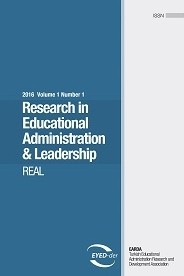Mentoring and Role Modelling Through the Perspective of Academic Intellectual Leadership: Voluntarily and Institutionally
Mentoring and Role Modelling Through the Perspective of Academic Intellectual Leadership: Voluntarily and Institutionally
With their traditional roles as being knowledge producers and public intellectuals, the intellectual leadership of academics is formed jointly of responsibilities regarding emerging expectations such as income generation, international networking, external collaboration, interdisciplinary research, disciplinary/institutional representation, and guidance/supervision of younger colleagues’ studies. While academic intellectual leadership basically includes six dimensions, Mentor and Role Model are the two core dimensions that intertwine around the others; namely, Acquisitor, Steward, Ambassador, and Advocate. Therefore, the purpose of this research is to compare the rationales and outcomes of voluntary mentoring-role modelling behaviours and institutional mentoring-role modelling programs through the perspective of academic intellectual leadership. In the research, a systematic review of the literature was employed to examine mentoring-role modelling components in the peer-reviewed articles on academic intellectual leadership, following the five essential steps of systematic review methodology: i)formulating research question(s), ii) setting inclusion-exclusion criteria, iii) establishing a systematic search protocol, iv) apprising the quality of individual studies, and v)integrating prominent findings. Results of the analysis revealed that the personal and economic rationales behind the voluntary mentoring-role modelling behaviours of senior academics are largely consistent with the organisational goals of institutional mentoring-role modelling practices. Further, the symbiotic nature of the mentor-mentee relationship generates a huge potential to enrich the scientific productivity of both senior and junior academics. However, cultural and political reasons largely shape the international practices of mentoring-role modelling in higher education, both at individual and institutional level.
___
- Browning, L., Thompson, K., & Dawson, D. (2017). From early career researcher to research leader: Survival of the fittest? Journal of Higher Education Policy and Management, 39(4), 361-377. doi10.1080/1360080X.2017.1330814
